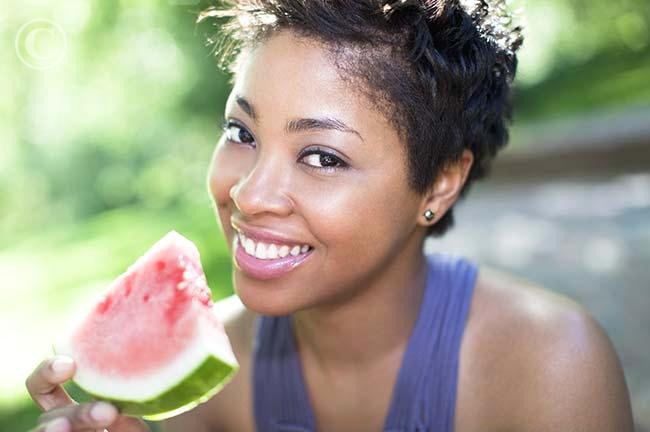Iron is one of the most abundant metals on earth, is an essential mineral to most life forms and to normal human functioning.
In humans, almost two-thirds of iron our body is found in hemoglobin, the protein in red blood cells that carries oxygen to tissues. Smaller amounts of iron are found in myoglobin, a protein that helps supply oxygen to muscle, and in enzymes that assist biochemical reactions. Iron is also found in proteins that stores it for future needs, and are regulated by intestinal walls.
SOURCES OF IRON
Many foods contain high levels of iron, and you can easily find and combine them to make tasty, nutritious meals that helps boost your body system. They include:
- Fruits and vegetables: Dried fruits (prunes, raisins), mushrooms, and dark leafy greens (pumpkin, spinach, broccoli), and citrus fruits, red and yellow peppers.
- Nuts and seeds: cashews, sunflower and pumpkin seeds, pine, nuts, and pistachios.
- Animal sources: Liver, egg yolks, turkey or chicken gizzards, meat and fish, beef, lamb shellfish, oysters, shrimp sardines, salmon, and tuna.
- Dairy products: raw cow or soy milk, yogurt, and cheese.
- Plant sources: black beans, brown beans, soybeans, kidney beans, chickpeas, black-eyed peas, and lima beans.
EFFECTS OF IRON DEFICIENCY/ OVERLOAD
The risk of iron deficiency is high in women (teenage girls, female athletes, and pregnant women), preterm infants, young children as well as people with certain health conditions (heart, kidney diseases, celiac diseases etc., its effects include:
- The deficiency of iron leads to anemia, which occurs when the body does not have enough iron.
- Reduced oxygen delivery to cells, results in dizziness, fatigue, and poor work performance.
- Elevated levels of free iron stimulate the growth of microbes and increase the risk of infections thereby decreasing immunity.
- Iron overload may lead to cancer, irregular menstrual flow, and infertility.
- Reduced iron can affect mental alertness and sensitivity, as iron is required for proper shielding of neurons of the nervous system.
BENEFITS OF IRON
- An essential component of proteins involved in oxygen transport.
- Iron is an integral part of many proteins and enzymes that maintain good health.
- It is also essential for the regulation of cell growth and differentiation.
- Vital mineral in myoglobin, a muscle protein required for oxygen transport and contraction of the muscles.
- Boost brain activity, as Iron helps supply oxygen to the blood and 20% of which is consumed by the brain.
WELLNESS CUES: TIPS FOR GETTING MORE IRON IN YOUR DIET
NUTRITION
- Avoid the following, as they can interfere with iron absorption:
- Drinking tea or coffee with meals.
- Foods such as whole cereals, parsley, dark leafy vegetables, and chocolate, rich in oxalic acid, tannins, phytates, and gluten.
- Eating foods rich in calcium with those rich in iron, as calcium limits iron uptake into the body.
- Do your best to eat iron-rich foods along with those rich in vitamin C, for vitamin C aids the uptake of iron into the body.
- Cooking foods for shorter periods and with a cast-iron skillet.
LIFESTYLE CHANGES
- Keep a clean and safe environment as malarial infection paralyzes red blood cells, thereby causing anemia.
- Avoid medications that can deplete iron such as tetracycline, ciprofloxacin, high blood pressure reducing drugs.
- The iron from foods you eat may not always be sufficient, so supplementation may be needed. Speak with a doctor or dietician, who may recommend a supplement and it’s crucial to follow dosage instructions carefully.
Let the insights you have gained of risks and benefits, be an integral factor to your daily decision-making process on what you feed your body, and aim to get iron from a variety of sources.
About Hosanna
I am Hosanna Oyibo, a Public Health Coach. I am an avid reader, personal development enthusiast, network marketing professional and a volunteer. I’m also interested in travelling, gardening, and sports. You can read about me and visit my blog with a click on this link https://about.me/hosannaoyibo.

